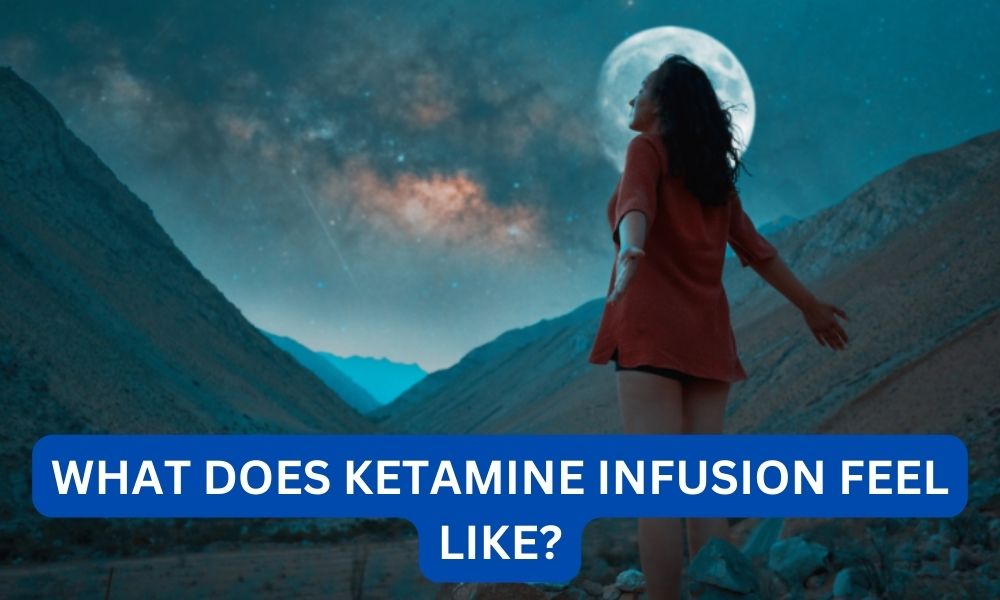Ketamine infusion therapy has gained significant attention in recent years as a potential treatment for various mental health conditions, including depression, anxiety, and post-traumatic stress disorder (PTSD). While the effectiveness of ketamine infusion therapy is well-documented, many individuals considering this treatment may wonder what it feels like to undergo a ketamine infusion. In this article, we will explore the subjective experiences of individuals who have undergone ketamine infusion therapy, providing valuable insights into the sensations, emotions, and overall effects of this unique treatment.
Contents
The basics of ketamine infusion therapy
Before delving into the subjective experiences of ketamine infusion therapy, it is important to understand the basics of this treatment. Ketamine is a dissociative anesthetic that has been used for decades in medical settings. In recent years, it has gained recognition for its potential antidepressant and anxiolytic effects when administered in subanesthetic doses.
Ketamine infusion therapy involves the intravenous administration of ketamine over a period of time, typically ranging from 40 minutes to a few hours. The dosage and duration of the infusion are determined by the prescribing physician based on the individual’s specific needs and response to the treatment. During the infusion, patients are closely monitored by medical professionals to ensure their safety and well-being.
Read:What are the benefits of getting married?The onset and initial sensations
When undergoing a ketamine infusion, patients often report a rapid onset of effects. Within minutes of the infusion starting, individuals may begin to feel a sense of dissociation from their surroundings. This dissociation is often described as a feeling of detachment from one’s body or a sense of being in a dream-like state.
Many individuals also report experiencing visual and auditory distortions during the initial stages of the infusion. These distortions can manifest as changes in perception, such as enhanced colors or altered sounds. Some individuals may also experience a sense of time distortion, where minutes may feel like hours or vice versa.
The emotional landscape
One of the most notable aspects of ketamine infusion therapy is its impact on emotions. Many individuals report a significant shift in their emotional state during the infusion. While the specific emotions experienced can vary from person to person, some common themes emerge.
1. Euphoria: Some individuals describe feeling a profound sense of euphoria or intense happiness during the infusion. This feeling of euphoria can be accompanied by a sense of peace and contentment.
2. Emotional release: Ketamine infusion therapy has been reported to facilitate emotional release, allowing individuals to process and release pent-up emotions. This can manifest as crying, laughter, or a combination of both.
Read:What do you wear in a salt cave?3. Increased empathy: Some individuals report feeling a heightened sense of empathy and connection with others during the infusion. This increased empathy can lead to a greater understanding of one’s own emotions and the emotions of others.
The physical sensations
In addition to the emotional effects, ketamine infusion therapy can also produce various physical sensations. While these sensations can vary from person to person, some commonly reported experiences include:
- Relaxation: Many individuals report feeling deeply relaxed during the infusion, with a sense of tension and stress melting away.
- Weightlessness: Some individuals describe a sensation of weightlessness or floating during the infusion. This feeling of weightlessness can contribute to the overall sense of dissociation.
- Tingling or numbness: It is not uncommon for individuals to experience tingling or numbness in their extremities during the infusion. This sensation is typically temporary and subsides once the infusion is complete.
- Changes in body temperature: Ketamine infusion therapy can cause fluctuations in body temperature. Some individuals may feel warmer or colder than usual during the infusion.
The duration and after-effects
The duration of the effects of ketamine infusion therapy can vary depending on the individual and the specific dosage administered. While the acute effects of the infusion typically last for a few hours, some individuals may experience lingering effects for several days.
Read:The Unveiled Havens: States where 18-year-olds can Unlock Hotel RetreatsAfter the infusion, individuals may feel a sense of mental clarity and increased energy. Many individuals report a reduction in symptoms related to depression, anxiety, and PTSD in the days following the infusion. However, it is important to note that the long-term effects of ketamine infusion therapy are still being studied, and the duration of symptom relief can vary from person to person.
Case studies and statistics
Several case studies and clinical trials have provided valuable insights into the subjective experiences of individuals undergoing ketamine infusion therapy. For example, a study published in the Journal of Clinical Psychiatry found that 70% of participants reported a positive response to ketamine infusion therapy for treatment-resistant depression.
Another study published in the Journal of Psychopharmacology examined the subjective experiences of individuals undergoing ketamine infusion therapy for PTSD. The study found that participants reported a reduction in PTSD symptoms and an improvement in overall well-being following the infusion.
While these studies provide promising evidence of the effectiveness of ketamine infusion therapy, it is important to note that individual experiences can vary. Some individuals may not experience the same level of symptom relief or may have different subjective experiences during the infusion.
Summary
Ketamine infusion therapy offers a unique and potentially transformative experience for individuals seeking relief from mental health conditions such as depression, anxiety, and PTSD. The subjective experiences of individuals undergoing ketamine infusion therapy can vary, but common themes include a sense of dissociation, emotional shifts, and physical sensations. While the acute effects of the infusion typically last for a few hours, many individuals report a reduction in symptoms and an improvement in overall well-being in the days following the infusion. While further research is needed to fully understand the long-term effects of ketamine infusion therapy, the growing body of evidence suggests that it holds promise as a valuable treatment option for those in need.









